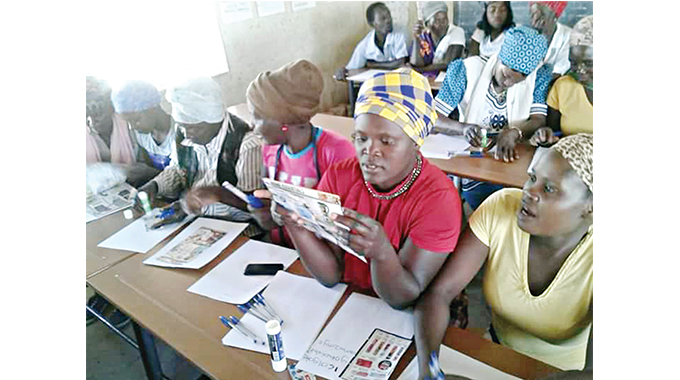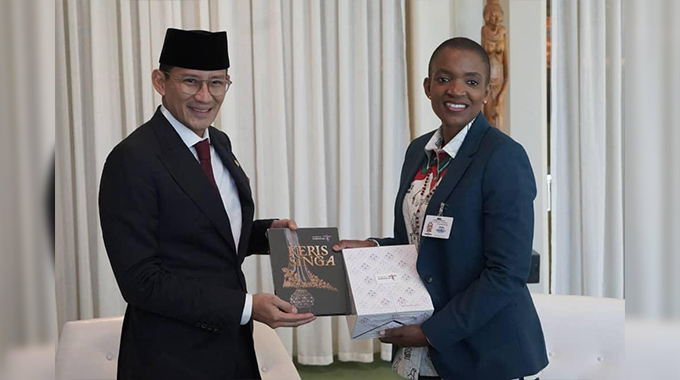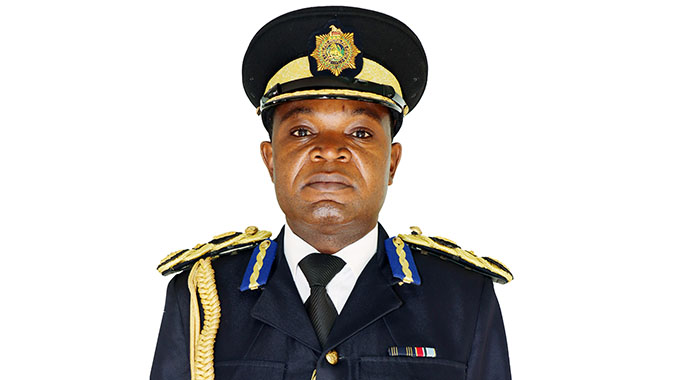Couple wants to see literate Tsholotsho community

Thandeka Moyo-Ndlovu, Chronicle Reporter
HE dropped out of Ntulula Primary School in Masuza Village, Tsholotsho in Matabeleland North Province, while doing Grade 7 in 1990.
Like many of his peers, Mr Wonder Ncube then fell into a trap of crossing the borders into neighbouring South Africa before completing his primary school education.
Unbeknown to him, life was not as rosy as imagined and a series of hardships without any qualification in the city of gold — Johannesburg — were enough to resurrect that yearning for education which is the key to success.
Twenty-three years later after his departure from Masuza Village, Mr Ncube went back to school in South Africa and completed Grade 12 at 36.
There, he also met up with his former classmate and friend Ms Sibhekaphi Sibanda whom he married before they started Isibanesethu Community Learning Group whose aim is to improve literacy levels in the community and ensure that all everyone in Masuza Village is literate.
Those who dropped out are encouraged to go back to school.
Mr Ncube comes from a province in which for a number of years some schools have recorded a zero percent pass rate in Grade Seven examinations.
Matabeleland North is also affected by a high number of school drop outs, especially girls, due to shortage of teachers and infrastructure, forcing thousands of pupils to walk more than 10km daily to and from school.
Poverty coupled with hunger as well as early pregnancies and child marriages are some of the school dropout drivers.

Masuza villagers during one of Isibanesethu literacy programmes
For many, migrating to South Africa and Botswana has been the easy way out but without basic education, teens tend to reap countless misfortunes in their quest for development. After learning the hard way, today Mr Ncube and his wife, a qualified teacher, have partnered with other villagers and established the very first community library at Ntulula Primary School.
The library is equipped with school books for all ages including educative novels.
It also has computers currently powered by diesel but there are plans to install solar panels.
“Poverty and lack of positive role models in the Tsholotsho district has historically led to early dropout from school and premature migration to neighbouring South Africa where youths engage in criminal activities to achieve their dreams,” says Mr Ncube.
“We have empowered youths with various life skills by establishing a ‘finish school initiative’ which encourages youths who dropped out of school to finish their secondary education. We offer basic computer skills and give possible career paths through skills development at the local community Centre that we have established.”
He said the organisation has gone on to promote health education and it hosts community workshops on selected health topics to also dispel myths about certain diseases.
His wife Ms Sibanda added that literacy is the best gift they can give to the Masuza Village which groomed them. “What inspired us to start Isibanesethu is the fact that education was not valued in the community. Children were so discouraged and could easily drop out without completing primary school. We have now reached about 400 villagers including children and we wish to inspire literacy development at grassroots and the culture of reading in every household,” says Ms Sibanda.
According to Ms Sibanda, every child deserves to start learning from the time they are born, even if their parents are living in rural areas.
Through their project, Masuza villagers have been trained to establish reading corners within their homes where they hang animal, colour and number charts for children to master the art of reading from an early age.
The older villagers also access reading material from the library which has a television set and various books.
Ms Sibanda says the aim is to acquire more books even in local languages.
For now, the couple is conducting virtual workshops with 14 villagers due to Covid-19 so that they share the skills with others.
“We have facilitated community literacy awareness workshops where mothers and caregivers were empowered in imparting basic literacy skills to their children to be able to do early detection of barriers to learning in early child development,” she adds.
“Lack of information, the ‘injiva’ mentality makes it difficult for the community to embrace education. Lack of role models as well means they do not have anyone to look up to hence our aim is to show them that it is possible to achieve greatness even if you are from Masuza Village.”
Ms Sibanda works as a project co-ordinator for a literacy promoting organisation and has a degree in counselling and social behaviour studies acquired at Stellenbosch University.
“My husband did a business management course and is running his own transport business now. However, he has had first-hand experience with crime when he used to work as an armed reaction officer. Most criminals who got killed were people from home and it frustrated him having to deal with crimes involving our own. That is why he is inspired to make Isibanesethu a success,” added Ms Sibanda.
One of the beneficiaries, Ms Mercy Ncube, said she dropped out of school while doing Form Three back in 1989 after she fell pregnant.
At 49 this year, she is one of the literacy champions at Masuza and is happy to have access to a library in her lifetime.
She says the project has helped keep children in school and will instil confidence in education which has been eroded over the years.
“I am happy to be part of this initiative and am currently doing some training with Isibanesethu so that I go back and empower other women. As a dropout myself, I faced many challenges even after marriage which I know our children won’t face now that they have access to education even from early childhood development.”
She said the computers will save villagers a lot of money travelling from the village to Tsholotsho in search of computer services.
For Ms Ncube, Covid-19 has stalled some of the programmes meant to be implemented in the community as there are plans to ensure most dropouts including girls who fell into child marriages resume studies.
Ms Winnie Ndlovu (52), who could not proceed to secondary school due to the liberation struggle said the project has also brought families closer as parents and guardians are now taking part in ensuring their children read every day.
“We have been empowered and we are happy that our children will now have a chance to access education which will be useful in their future. Elders now have an appreciation of education and the reading corners we are establishing have helped us bond and understand our children in a better and fulfilling manner,” says Ms Ndlovu. — @thamamoe.











Comments